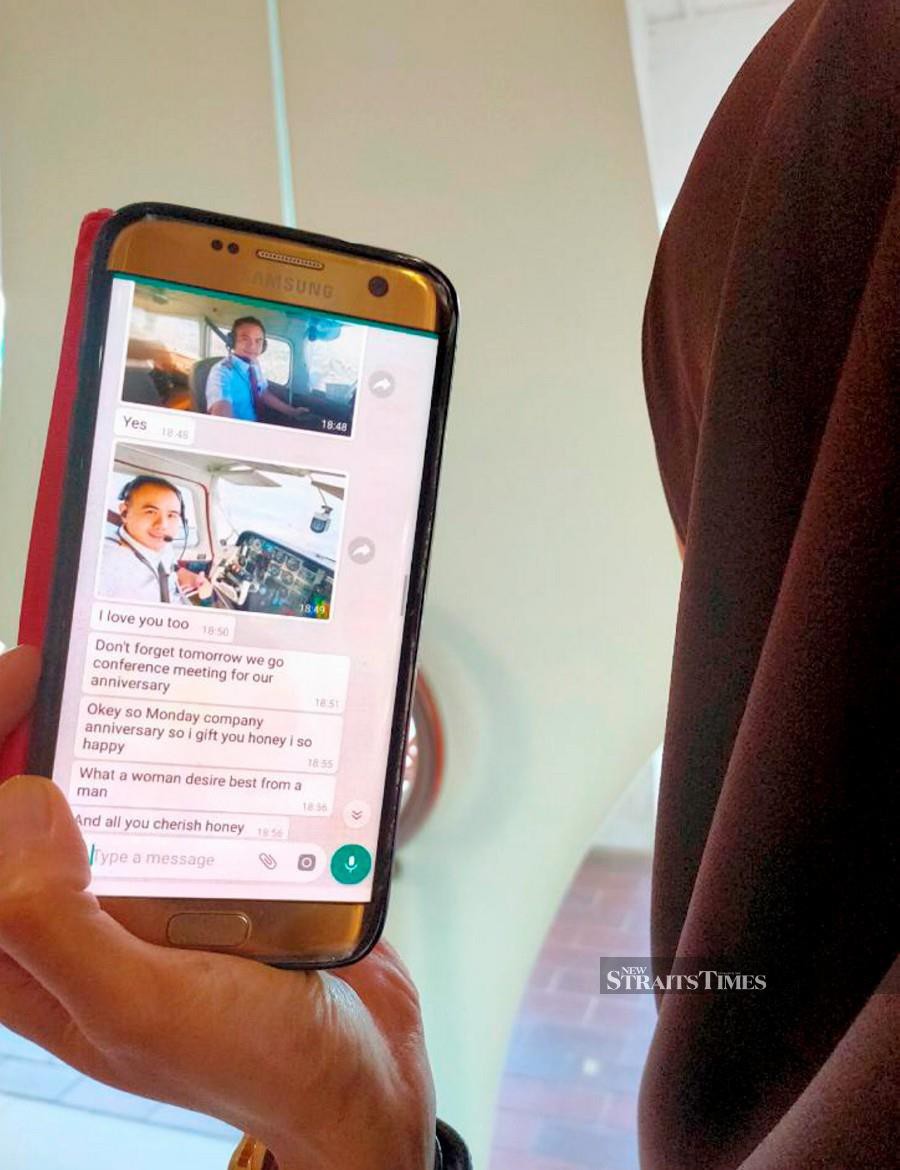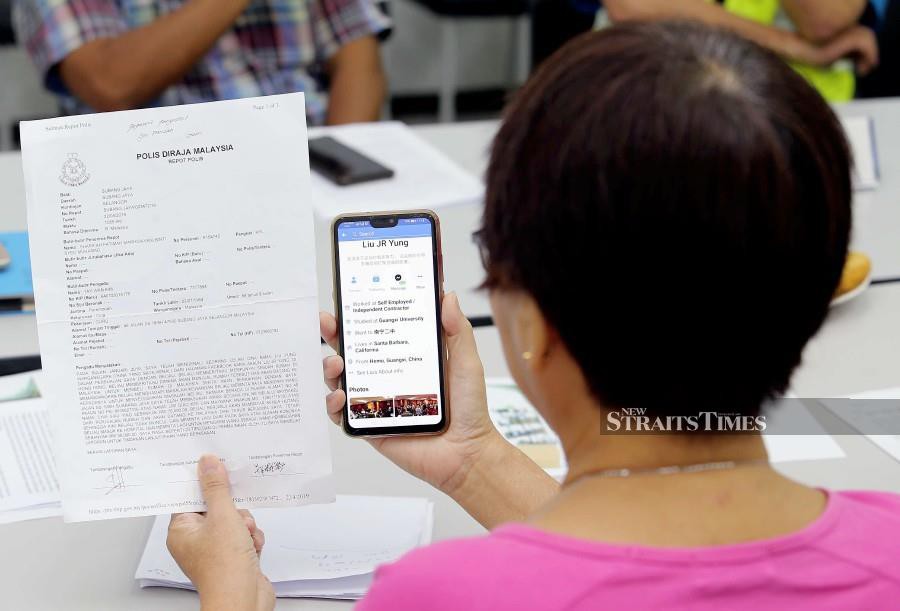
#TECH: Many lonely hearts are still falling for online fake lovers
by Nur Zarina OthmanIt’s heartbreaking that so many lonely hearts are still falling for online fake lovers, writes Nur Zarina Othman
FEBRUARY is associated with the month of passion and love because of Valentine’s Day.
Chocolatiers, florists and jewellers bank on love and rake in high profits on this love day, but they are not the only people who benefit.
SOCIAL LOVE SCAM
It started with the hope of love and affection. Just a month ago, a nurse from Lipis, Pahang, had lost RM22,150 after falling for a man she befriended on a social media platform.
This is no isolated incident. Cybersecurity Malaysia recorded 61 love scam cases since 2015.
Although the number declined to half last year compared with the 18 cases in 2015, there’s still an increase since 2018.
Some of the cases show that the victims believed in the person they met on social media and felt they were duped by a third party.
Take, for example, a woman from Johor who met someone on Facebook. Their relationship went on for about a year before she fell for a scam revolving around a parcel, which saw her losing RM380,000.
However, she still believed in the honesty of her sweetheart and blamed the “custom agent” who took advantage of the situation.

(File photo) Scammers initiate a friendship or relationship with the victim online. Photo by ZULIATY ZULKIFFLI
MODUS OPERANDI
Datuk Amirudin Abdul Wahab, chief executive officer of Cybersecurity Malaysia, says: “Scammers initiate a friendship or relationship with the victim online. With so many dating apps today, they have thousands of users at their fingertips and they know some would fall for their scam.”
Age is an important factor. The victims have money on top of being lonely, which is one of the main reasons women fall for this scam.
“The scammers usually target the older generation, who may be less knowledgeable, and lonely women. They convince these victims to send money or entice them with an expensive parcel delivery,” he says.
SOCIAL NUISANCE
Online scams have been around since the inception of Internet, but romance scams are becoming a social nuisance as it involves large sums of money.
“Women who are single, divorced or widowed are vulnerable to romance scams. They don’t go out much but long for romance and they are the target of scammers,” says Amirudin.
He advises the public to exercise caution online.

(File photo) Cybersecurity Malaysia recorded 61 love scam cases since 2015. Photo by NSTP/SAIFULLIZAN TAMADI
“Don’t over-share personal details, especially (the lack of) love life on social media platforms. You don’t know who is looking for the opportunity to take advantage of you,” he says.
He warns Internet users to never give out personal information, such as phone number, bank accounts, credit card numbers and house address to people you meet online and through dating websites.
“Disable the webcam while chatting and do not believe any claim of one’s mother tongue, nationality and origin,” says Amirudin, advising users to not fall for sob stories too.
AWARENESS PROGRAMME
“Awareness is critical,” says Amirudin.
Cybersecurity Malaysia has programmes to create awareness and to educate the public on cyber security.
One of them is the CyberSAFE programme.
“We provide cyber security awareness talks to organisations, the public and private sectors, higher learning institutes and schools,” he says.
He says in curbing love scams, friends and family play an important role.
“If they suspect someone close to them is the target of a scam, they can show facts or samples of love scam cases as published in the media,” says Amirudin.
One should not accept friend requests from strangers on the Internet, he adds.